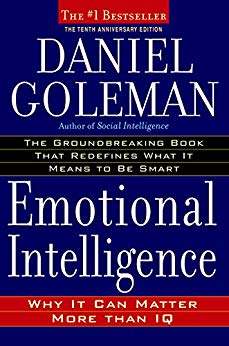

This article is an excerpt from the Shortform summary of "Emotional Intelligence" by Daniel Goleman. Shortform has the world's best summaries of books you should be reading.
Like this article? Sign up for a free trial here .
Do you feel sad more than you want? Do you want to cope with sadness or stop feeling sad?
Here’s a complete guide on understanding your sadness, what it is, how NOT to control your anger, and what to do.
What Sadness Is
We experience sadness when we feel lonely or when we’ve lost something or someone that’s important to us. For example, even if you feel sad when you see a happy couple because you’ve never been in a relationship, you’re still mourning the perceived loss or lack of something you feel is important: companionship.
How NOT to Stop Being Sad
People are most inventive when trying to change feelings of sadness, and it’s generally the mood people put the most energy into changing. But, of course, a lot of our coping methods don’t actually positively deal with the sadness, they negatively reinforce it.
Isolating ourselves when we feel sad actually usually doesn’t make us feel better. It adds to our feelings of loneliness and distance.
A lot of us fixate on the sadness to try to figure out what’s wrong or to understand ourselves better. But this is rumination, which, as we already know, actually increases and prolongs the feelings we’re ruminating on. It’s useful to analyze your sadness if it actually leads to concrete actions or insights that will result in positive change–but if you find yourself passively ruminating on why you’re so sad, you’re probably just reinforcing how sad you are. You will not stop being sad.
- We usually end up worrying about some aspect of our sadness–how little we’re getting done because of it, or how tired we are, or how unmotivated we feel. This usually doesn’t come with any actionable improvements.
- Women are more likely to ruminate when they’re depressed than men, which might account for the higher rate of depression in women–women are twice as likely to be diagnosed with depression than men. But this may also be attributed to the fact that women are generally more open to admitting their distress (men may be more likely to deal with their depression through alcohol–they’re about twice as likely to be alcoholics).
- Many people think “having a good cry” is an easy way to stop feeling sadness, but again, it depends on the kind of crying: some cry sessions can break the feelings of sadness, but often, crying about something means we’re thinking about it, and the longer and harder we cry, the more we’re thinking about it–this is ruminating in the form of crying.
———End of Preview———

Like what you just read? Read the rest of the world's best summary of Daniel Coleman's "Emotional Intelligence: Why It Can Matter More than IQ" at Shortform . Learn the book's critical concepts in 20 minutes or less .
Here's what you'll find in our full Emotional Intelligence summary :
- What are emotions? Why do we have them?
- What is emotional intelligence? Why is it important?
- How do you manage your own emotions? Anger, anxiety, and sadness?
- How can you approach your relationships with more emotional intelligence?
- How can you teach your children emotional intelligence?
- How can emotional intelligence boost your career?






